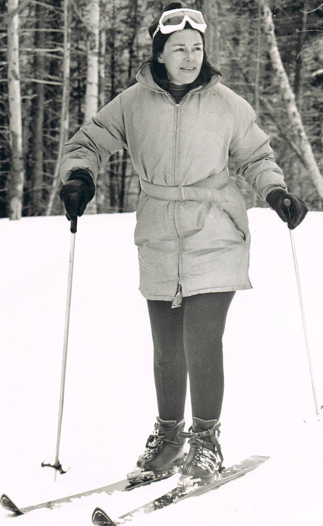
Dinah Witchel, 76, whose editing skills were employed over much of the last half of the 20th century in fact-correcting and enhancing the work of scores of ski writers, died in New York City, August 23, after a battle with cancer.
Dinah started her career in ski publishing in 1963 as managing editor of SKI Magazine. She moved in 1964 to rival Skiing Magazine in New York, where she served as the managing editor and then the executive editor from 1964 to 1984, a time when the names of Doug Pfeiffer and Al Greenberg were atop the magazine’s masthead. She wrote dozens of travel and resort articles for Skiing.
In 1988, she worked for me as managing editor of the premiere issue of Snow Country. For the last six years, Dinah was a highly valued member of the editorial board of Skiing History Magazine, scrutinizing hundreds of manuscripts submitted for publication. Her knowledge and editing prowess will be sorely missed.
Dinah Witchel was an early champion in print of the notion that learning to ski is a different experience for women, and with ski instructor Elissa Slanger, she co-authored the seminal book Ski Woman's Way, published in 1979.
“Dinah was level-headed, practical, sharp-witted, and a strong defender of editorial integrity,” says former Skiing Magazine editor Rick Kahl. “She was the epitome of a professional editor and an oasis of calm and reason in the corporate publishing culture. She was a mentor to me in the 1980s. If there was one person I've tried to model for fairness, creativity, and grace under fire, it's Dinah.”
Alice Dinah Brown was born October 9, 1936 in Honolulu. Her father was in the military, and the family moved often. She received a BA from University of Maryland and MA from Columbia University’s prestigious Teachers College. She was married for 53 years to publishing executive Larry Witchel. The couple lived on Manhattan’s Upper West Side. They are survived by two children, Elisabeth of The Wirrel, England, and John of Durango, Colorado.
The art of editing at its best is the unique skill of improving text in a non-confrontational manner, wherein the editor enables the author to be a satisfied, approving participant in an often challenging process. Dinah was a master of the craft. – John Fry

Add new comment